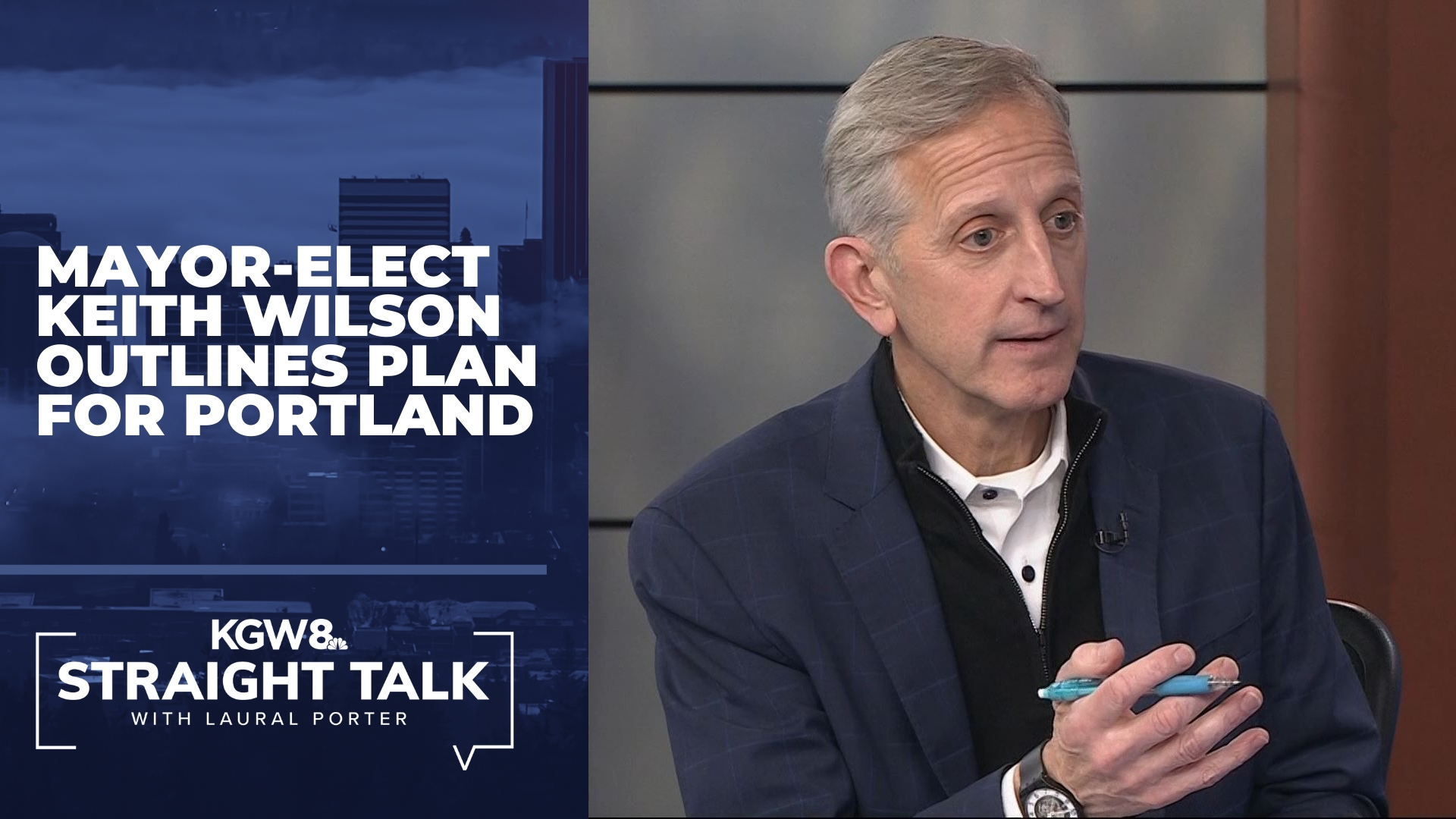PORTLAND, Ore. — Speaking from his office in the Dirksen United States Senate building in Washington, D.C., Oregon Sen. Ron Wyden said he's been there for weeks on end during the pandemic.
He told KGW Straight Talk host Laural Porter the only real breaks he's taken have been to "Zoom in" for a couple of Passover Seders.
"The reason I am sitting here at this desk is because I feel this is where I could do the most good for Oregonians. We all know a lot of folks are hurting.
So we are here pushing to make sure Oregonians get the benefits Congress intended," he said.
This week, President Trump signed a bill passed by Congress providing nearly $500 billion for small businesses and hospitals.
Many Oregon businesses missed out on benefits from the last relief package while big restaurant chains, such as Ruth's Chris Steakhouse, got large loans before the program ran out of money. The owner of Ruth's Chris Steakhouse later this week said his company will pay back the $20 million.
Sen. Wyden said Oregon businesses have been understandably frustrated, but he thinks there's reason to be hopeful going forward.
"I think that in the days ahead, Oregon small businesses will benefit from a program that I authored. It's called the 'Employee Retention Act,' which offers refundable tax credits for employers," he said. (Story continues below)
As the ranking member on the Senate Finance Committee, Wyden and his staff had coincidentally been working on an overhaul of the nation's unemployment program before the pandemic hit. He said they were essentially trying to bring the program into the modern era.
"The unemployment law was written in the 1930s and no one had ever heard of the gig worker," he said.
Wyden pushed to get the gig worker, self- employed, and independent contractors included in the benefits covered in the $2 trillion coronavirus relief package.
"These people are going to get full unemployment benefits. The additional $600 each week for the next four months," Wyden said.
He acknowledged the difficulty of getting the money to Americans, with many states' employment departments, including Oregon's, overwhelmed by the flood of people trying to file claims.
"Now, you write the law in D.C., you still have to look at how it's administered," he said.
Wyden said he's pushing the Labor Department to give states more help getting the checks out, and help updating antiquated computer systems.
In the meantime, he wants to ensure Americans the benefits are retroactive and people who have earned the benefits will get them. The total for Oregon, he said, is $3.3 billion.
Oregon's senior senator is also focused on getting benefits to Oregon's most vulnerable citizens, including people without homes, or permanent addresses, and bank accounts.
He said he's pushing Treasury Secretary Steven Mnuchin to aggressively reach out to people who don't have traditional bank accounts.
"One of the reasons I am sitting in this office today is I'm going to stay at it until those benefits get into the hands of those who are most vulnerable and make sure they're cared for amidst this crisis," he said.
Looking ahead to the November election, Sen. Wyden pointed to the primary voting fiasco in Wisconsin and said it's time to move to a nationwide vote-by-mail system similar to the ones in Oregon and Washington. Oregon pioneered vote-by-mail 20 years ago.
Voters in Wisconsin faced long lines. Many voters weren't wearing masks. Polling places were closed, and most poll workers were older citizens who are more vulnerable to COVID-19.
"We would never put Oregonians at risk that way. It's time to COVID-proof American elections," he said.
He discounted Republicans' concerns about whether vote-by-mail favors Democrats, saying the evidence shows the system doesn't benefit one political party over another.
"I was Oregon's first senator to be elected by mail. Gordon Smith, a Republican, was the second," he said.
Wyden is pushing for $3.6 billion to expand vote-by-mail and early voting to be added to the next coronavirus relief package.
He recognized the several trillion dollars in relief funds, with more possibly to come, has added significantly to the already $23 trillion dollar national debt, and that one day it will have to be paid back. But, he said right now, he's focused on the immediate crisis.
"I'm one who says you have to look at the economics. It's one of the reasons I pushed so hard for unemployment benefits. Not only do they pay for rent and groceries, they're also critically important, because they generate demand for goods and services," he said.
When asked when he thinks the stay-home orders should be lifted, Wyden said Oregon Gov. Kate Brown has a good team of public health officials and others advising her.
"What I expect they'll do is get Oregonians back to work as quickly as possible while keeping them safe," he said.
He also said if there is less danger in rural areas, he hopes they can end the most restrictive measures sooner.
Wyden praised Oregonians and expressed a message of gratitude for helping to flatten the curve. He said Oregonians' hard work has paid off with lower infection rates and deaths compared to other states.
"You've heard me call it the Oregon way when Oregonians say we've got to work together," he said. "As their senator, I am very proud of them. And I'll do everything I can to back them up."
Straight Talk with Laural Porter airs Friday at 7 p.m., Saturday and Sunday at 6:30 p.m., and Monday at 4:30 a.m. It's also available as a podcast.



